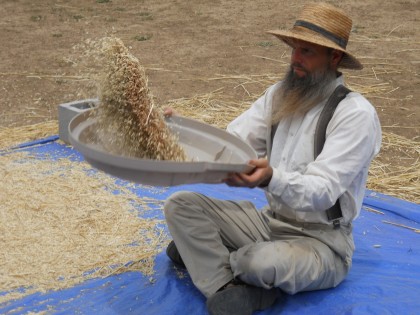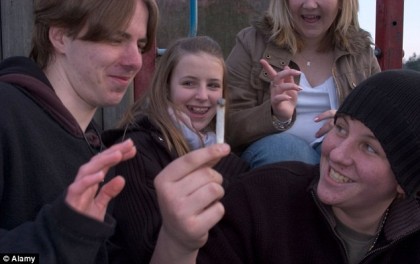Who Cares What You Think?
Devra Torres | Nov 22, 2014 | 2 cmts
When I came home from college for the first time, my eyes were opened to just how strange my family was. Everything I had thought “that’s just the way it’s done” about had turned out to be just one option among many. Other people didn’t share my assumptions: In fact, some thought my family’s ways were just as bizarre and alien as I thought theirs were. Then I got home and saw my family through their eyes.

I should add that my college was just about as congenial to my upbringing as it was possible for an institution to be. And it was still a shock. This classmate was horrified by the way I forced the French toast down into the butter when we shared kitchen duty; that one was dismayed by snatches of conversation between decades of the rosary. This one got drunk every weekend; that one was scandalized by the wine our professors served with the cheese after evening lectures.
I had an enormous task in front of me: taking a second look at every assumption, tradition, taste, and conviction my own family life had produced in me. Everything I had picked up by osmosis would need to be sifted through. Which to throw back? Which to retain? Which new ones to adopt? Which to reject?

It’s a task I’m still working on. I can only imagine how daunting it is for people whose transition was far more dramatic.
I've thought about this as I've continued to read Self-Esteem Without Selfishness by Fr. Michel Esparza. Closely tied to his point about combining rightly understood humility with rightly understood self-confidence, he makes a key distinction: the one between wholesome independence and cold, indifferent self-sufficiency.
During normal progress towards maturity, each human person arrives at the stage of establishing his independence. The child simply takes his opinions from his parents (everything from “Birthday cakes ought to be made from scratch” to “Husbands ought to be faithful to their wives”). The adolescent is more likely to simply embrace the opinions of his peers.

And then the mature person comes, or is supposed to come, into the possession of his own views. Either he makes his own the ones he was raised with, or he deliberately decides to replace them. Or some combination of the two. But he is no longer at the mercy of others’ approval: he’s better acquainted with his own strengths and weaknesses, better equipped to accept or reject outside influences, knows who he is and what he believes.

But there are two versions of this “maturity” which seem the same at first glance.
In the first, the person has developed a healthy self-confidence, a rightly ordered self-love, the “humble self-esteem” which is so key in Esparza’s book. He doesn’t care what others think, in the sense that he doesn’t depend on them to do what every person ought to do for himself.
In the second version, he has developed not so much self-confidence as self-enclosure, the self-referential mindset Pope Francis talks about so much He doesn’t care what other people think, but that’s because he despises them, doesn’t care about their fate, and has ended up with a cold, inhuman detachment, rejecting the affective life instead of incorporating it.

This distinction isn’t just relevant to a child-to-parent or peer-to-peer relationship. It can come into play between husband and wife and between a person and the culture or community or institution he belongs to. The trick is to arrive at independence without indifference.
Fr. Michel says it better:
In practice, both self-sufficiency and vanity are hard to avoid. Only the saints…experience what St. Paul affirms: “For though I am free from all men, I have made myself a slave to all…” (1 Cor. 9L19). The rest of us, given our limitations, strive for balance and manage as best we can. Some, for fear of losing their autonomy, won’t surrender to anybody and end up living in solitude; others, beset by an insatiable hunger for affirmation, go about with heart in hand and bind themselves in a servile manner to the first bidder.
So if you're a college student home for Thanksgiving and your family suddenly looks very odd, or if you're the parent and your adult child is giving you funny looks, keep in mind that finding this balance is a tricky matter and a lifelong quest, and cut each other some slack.

Comments (2)
Marilyn Prever
Nov 22, 2014 3:51pm
Whaddaya mean, strange? ~Abba
Devra Torres
Nov 22, 2014 4:41pm
I was wrong! It was a youthful misunderstanding! I still like the French toast the way we always made it!